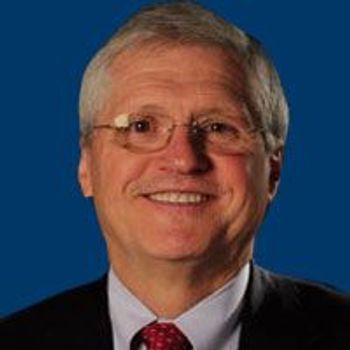
Mark G. Kris, MD, discusses recent progress in non–small cell lung cancer and small cell lung cancer, efforts being made to address unmet needs in these paradigms, and ongoing research that is generating excitement.

Your AI-Trained Oncology Knowledge Connection!


Mark G. Kris, MD, discusses recent progress in non–small cell lung cancer and small cell lung cancer, efforts being made to address unmet needs in these paradigms, and ongoing research that is generating excitement.

With the rise of immunotherapy, patients with lung cancer are experiencing improved outcomes that have allowed for prolonged survival, but it is important to ensure that the adverse effects associated with these novel agents are effectively managed so that their achieved efficacy does not come at the cost of quality of life.
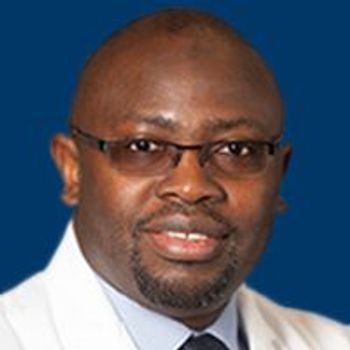
Chemoimmunotherapy is the new frontline standard of care for patients with small cell lung cancer, and other novel agents, such as, bispecific T-cell engagers are in the pipeline and gaining momentum for those who experience disease progression.

Each situation for stopping immunotherapy in lung cancer has its own complex nuances to consider before the decision is made to cease treatment.
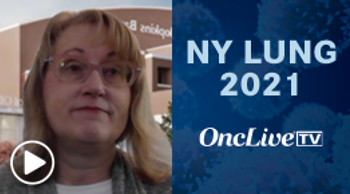
Julie Renee Brahmer, MD, MSc, discusses questions regarding the role of consolidative immunotherapy vs targeted therapy in locally advanced non–small cell lung cancer.
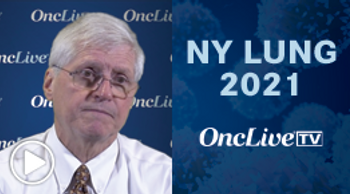
Mark G. Kris, MD, medical oncologist, William and Joy Ruane Chair in Thoracic Oncology, Memorial Sloan Kettering Cancer Center, discusses the next steps to improve outcomes for patients with lung cancer.
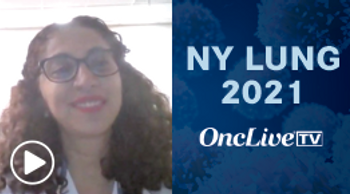
Nagashree Seetharamu, MD, MBBS, discusses the importance of utilizing a patient-centered treatment approach in lung cancer.
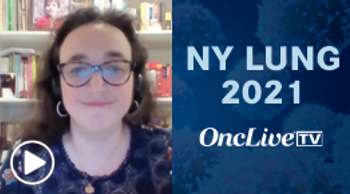
Marjorie G. Zauderer, MD, discusses emerging treatment strategies in mesothelioma.

Nagashree Seetharamu, MD, MBBS, discusses the importance of early and frequent genomic testing in patients with lung cancer, as well as remaining challenges faced in clinical practice and efforts being made to overcome them.

Marjorie G. Zauderer, MD, previews some of the new approaches in mesothelioma.

Julie Renee Brahmer, MD, MSc, discusses remaining questions regarding immunotherapy and targeted therapy in locally advanced NSCLC, data from the phase 3 PACIFIC and ADAURA trials, and her hopes for future clinical trials in the paradigm.

November 10, 2020 - Nasser Hanna, MD, discusses immunotherapy and, although, it may be the right therapy for most patients with lung cancer expressing PD-L1 greater than or equal to 50%, for those who are at risk for cancer-related morbidity with early progressive disease, chemoimmunotherapy may be the more appropriate choice.

Alterations in MET, RET, and NTRK have become established actionable drivers of oncogenesis in lung cancer, and therapeutics targeting these aberrations have since obtained regulatory approval from the FDA and have been incorporated into treatment guidelines.

Although historically considered to be undruggable, the KRAS G12C mutation has since emerged as an actionable alteration in the field of non–small cell lung cancer.

Maximilian Diehn, MD, PhD, discusses how the use of circulating tumor DNA to analyze minimal residual disease status in patients with lung cancer and other solid tumors is a rapidly developing field with the potential to further personalize treatment decisions about adjuvant therapy.

The oncology community has risen up as a unified front in the battle against coronavirus disease 2019, launching pivotal research efforts to better understand the enemy and collecting data to develop effective therapeutics to fill the treatment arsenal.

Tumor mutational burden has been associated with response to immunotherapy in patients with lung cancer, but there have been various criticisms regarding the validity and routine use of this as a biomarker.

Frontline chemoimmunotherapy trials represent a critical milestone in extensive-stage small cell lung cancer, but one that requires better understanding of the methods that can be used to broaden the patient population in whom durable benefit is currently concentrated.

Tony S. K. Mok, MD, BMSc, FRCPC, FASCO, discusses the actionable mutations that have been identified in the lung cancer space, the agents that have been developed to target them, and the importance of genetic testing to provide personalized care.
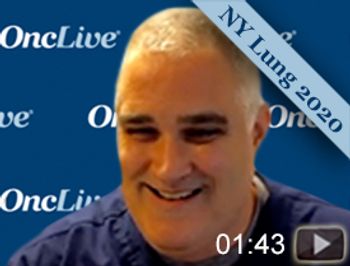
Nicholas C. Rohs, MD, discusses the importance of genetic testing in non–small cell lung cancer.
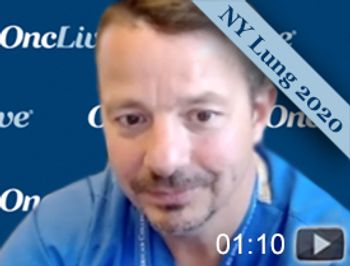
Nabil P. Rizk, MD, MS, MPH, discusses the evolving role of surgery in lung cancer.
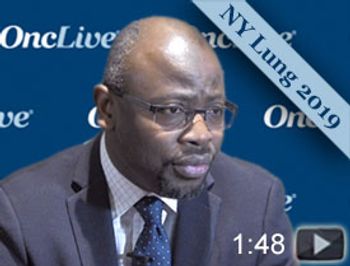
Taofeek K. Owonikoko, MD, PhD, discusses current standard of care treatments for patients with small cell lung cancer.
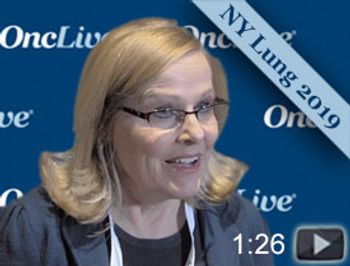
Karen Kelly, MD, discusses how to determine treatment after patients with lung cancer progress on TKIs.
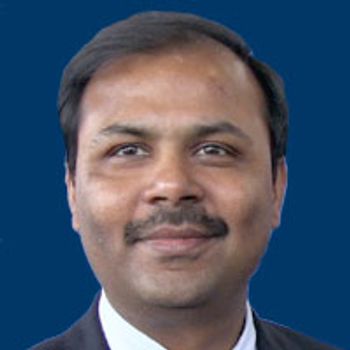
Suresh S. Ramalingam, MD, FASCO, highlights current and emerging therapies for 6 key actionable driver mutations in non–small cell lung cancer.
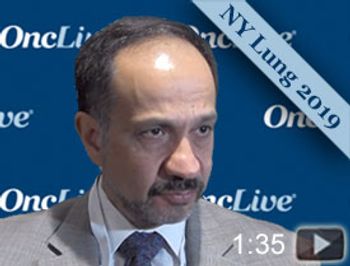
Hossein Borghaei, DO, MS, discusses the search for biomarkers in lung cancer.
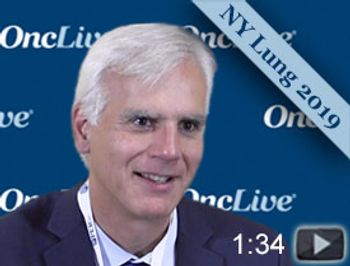
Balazs Halmos, MD, MS, discusses actionable biomarkers in patients with oncogene-driven non–small cell lung cancer.
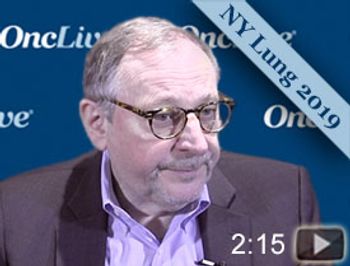
Fred R. Hirsch, MD, PhD, discusses the expansion of molecular testing in lung cancer.

Plasma genotyping is the next big thing in non–small cell lung cancer, and it's already impacting clinical practice.

Zofia Piotrowska, MD, MHS, discusses the role of osimertinib in treating patients with EGFR-mutant non–small cell lung cancer and how it compares with other therapeutic options in that space.
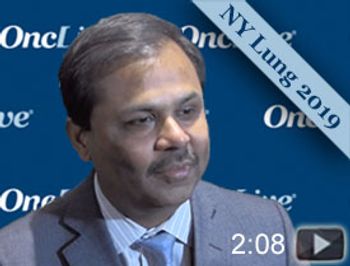
Suresh S. Ramalingam, MD, FASCO, discusses updated data from the FLAURA trial in EGFR-mutant non–small cell lung cancer.